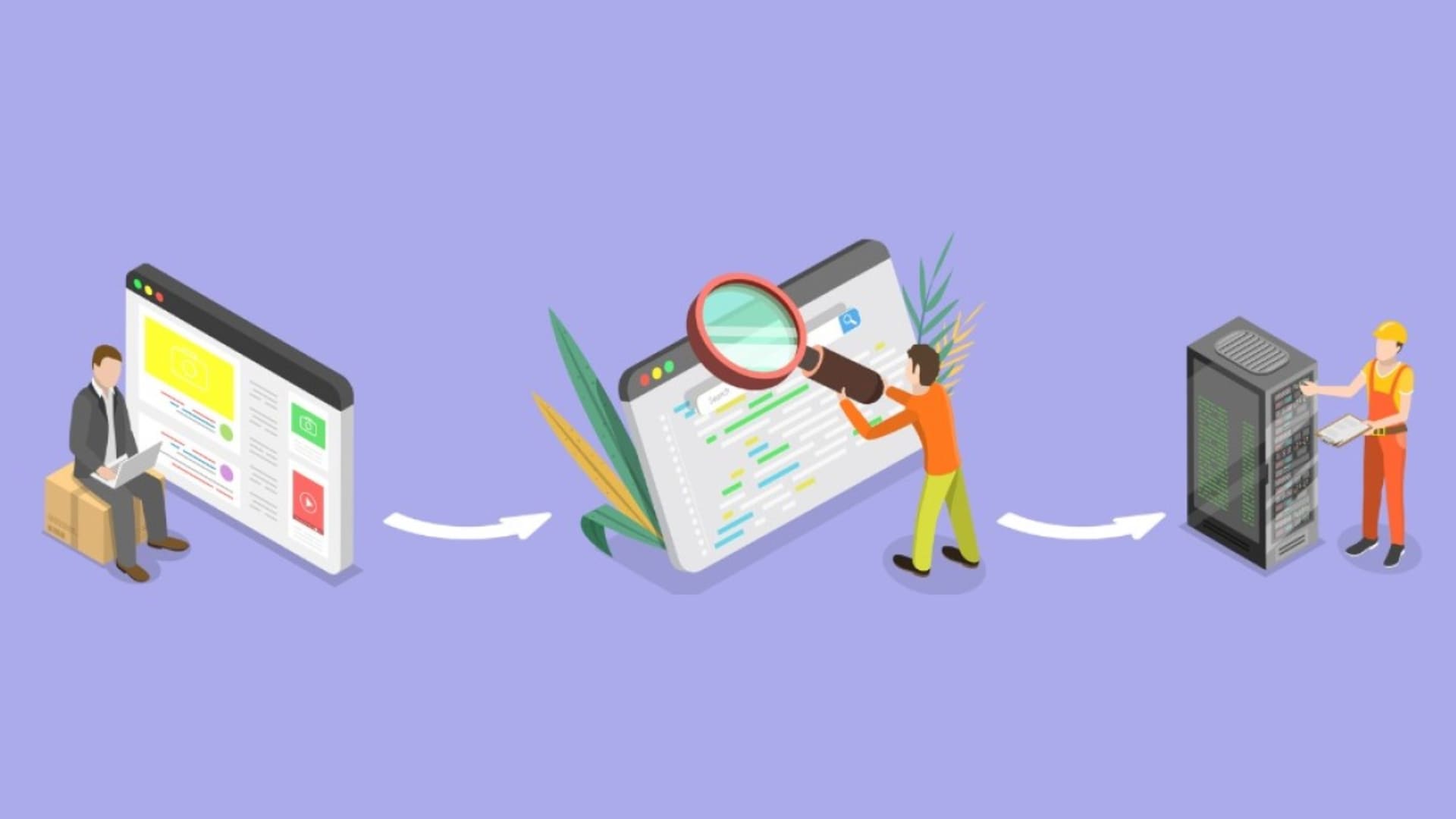Web scraping sounds a bit more nefarious than it is. Essentially, the web scraping process (also called “web harvesting”) involves extracting data from websites. For example, your company might need to collect stock prices, sports statistics, real estate data, product information, leads, contacts, authors, band names, song titles, or addresses and use that information to better refine and promote your products. This task might sound incredibly time-consuming or difficult, but with the help of the top Python web scraping libraries, you can achieve this goal simply and quickly.
Once you’ve undergone the web scraping process, you can then import the data into spreadsheets, databases, and even APIs. This process is exponentially easier than collecting the data manually. Even better, because programming languages like Python support web scraping tools, you can integrate the task directly into your programs. When you do that, you no longer have to manually run a web scraping task and then integrate the data into your programs.
Thanks to these libraries, the web scraping process is part of the package. And because there are so many companies offering Python development services around the globe, you won’t have any problem finding a team to build these applications, should your in-house teams be unsuccessful.
Of course, there is web scraping software. However, using those apps and scripts would require your teams to do considerably more work to get them integrated into your app. That’s why you should consider one of these Python web scraping libraries.
Why Is Choosing the Right Python Library for Web Scraping Important?
One of the main reasons why you might want to choose one library over another is simply the output it will produce. Some libraries export the scraped data into CSV or Excel spreadsheet formats, while others export in JSON. If your plan is to use the data with an API, your only option may be a library that exports in JSON format; otherwise, you’ll have to spend considerable time developing yet another tool for your application that will automate the process of converting either CSV or Excel data into JSON. That can be tricky and not always reliable.
If you’re looking to create web applications that are not only efficient but also reliable, selecting the right Python web scraping library will be key. With that in mind, let’s take a look at the best Python web scraping tools available.
The Web Page Scraping Process
Web scrapers work like this:
- Either a person or an application feeds a URL into the web scraper.
- The web scraper extracts either the entire contents from the web pages or only the specific information it is configured to extract.
- The web scraper then processes the scraped data and outputs it into either CSV, Excel, or JSON format that can be used by either a person or an application.
Although it looks like a simple process, the actual scraping of data is fairly complex, especially if you’re only looking to scrape specific data. And depending on how large the site you’re scraping is, the process can take a bit of time.
Things to Consider When Choosing a Python Library
As you might expect, web scraping isn’t exactly black and white. There are things you must consider.
- Legality: Although web scraping in and of itself isn’t illegal, you have to be very careful with the data you scrape. You don’t want to find yourself (or your company) in a situation where proprietary or protected data is scraped and then used for other purposes, as that can land you in trouble. Because of this, you’ll want to ensure your Python web scraping tools are being used for legitimate, legal purposes.
- Output format: As we’ve already mentioned, you want to make sure to select Python libraries that will output the scraped data in a format you can use.
- Open source: When choosing your Python library, you might need to consider whether or not you’ll need one released under an open-source license. You don’t want to lean too heavily on open-source libraries to create proprietary, closed-source software … at least not without giving back to the open-source community.
- Still in development: Sometimes a library will be created for a specific purpose and then abandoned. When you’re looking for a new Python library, make sure what you select is still in active development; otherwise, you could wind up with broken web applications and no way to fix them.
- Community: When you’re looking for a Python library, make sure to narrow your search down to only those with active and supportive communities; otherwise, you might wind up having to troubleshoot issues on your own.
Now that you understand what web scraping is and the issues to consider, let’s dive into the most popular Python libraries for web scraping on the market.
The 4 Top Web Scraping Libraries (Python)
Keep in mind that not all libraries that perform web scraping are created equal. Because of that, make sure to choose the one that is best suited for your project, your company, and the data you need to scrape.
#1 Beautiful Soup
Beautiful Soup is the best library on this list for beginners because it simply extracts data (from either HTML or XML documents) and transforms it into a Python object. Because of this, Beautiful Soup can be implemented in minutes.
This library makes it easy to extract data using tags, classes, IDs, names, or other HTML attributes. And given Beautiful Soup can be easily installed on any Debian-based operating system with apt-get or any OS that supports Python (using the pip installer), you won’t have any problems getting this library up and running.
Loading Beautiful Soup into a Python app is as simple as using a line like this:
from bs4 import BeautifulSoup
Key Features // Product Highlights
- Greatly simplifies the scraping of data from websites.
- Free and open source.
- Has a thriving and active community.
- Able to prettify the output of data.
| PROS | CONS |
| Very shallow learning curve. | Only offers basic functionality. |
| Allows for extraction of specific data. | Only fetches the content of your source URL and nothing more. |
| Allows developers to create their own scraping parameters. | Doesn’t edit or save data. |
| Can only output in HTML and XML formats. | Hard to use for larger scrapes without getting your IP banned. |
#2 Scrapy
Scrapy is the biggest competitor to Beautiful Soup. The main difference between the two is that Scrapy is considered more of a full-fledged tool for scraping data. This Python web scraping library handles everything from sending requests to implementing proxies, data extraction, and data export.
Scrapy also includes the necessary tools for data extraction, called selectors, which simplifies the process of choosing the necessary categories of data to be extracted. Where Beautiful Soup is used for very simplistic web scraping, Scrapy can be used for much more complex processes, such as automation testing and even data mining.
Key Features // Product Highlights
- Scrapy is a full-suite library for data extraction, so there’s no need to employ more tools for the process.
- Can automatically resume scrapes when it encounters errors (such as 404 errors).
- Can be used to create web spiders that will automatically extract data from a page that has updated.
- Includes the ability to throttle scraping speed.
- Can run multiple requests in parallel.
| PROS | CONS |
| Includes the tools for data post-processing. | Isn’t quite as flexible as Beautiful Soup. |
| Makes it easier to better organize scraped data to fit your needs. | Doesn’t work with JavaScript. |
| Can output in CSV, JSON, and XML formats. | More challenging to install than Beautiful Soup. |
| Steeper learning curve. |
#3 Selenium
One of the most popular Python libraries, Selenium is a great tool for scraping dynamic content that is rendered via JavaScript. This cross-platform tool can render HTML, CSS, and JavaScript and extract only what you need.
Selenium also makes it possible to mimic user interactions by way of coding keyboard and mouse actions into your application, which can come in very handy when dealing with interactive, dynamic websites.
Selenium uses a web driver to spawn a browser instance and loads the target web page. It then uses CSS and XPath locators to find and scrape content from the configured HTML elements.
Key Features // Product Highlights
- Supports multiple web browsers.
- Offers multi-language compatibility.
- Web elements are easily configured and identified.
- Supports scraping of dynamic content.
- Open-source.
- Cross-platform
| PROS | CONS |
| Can mimic most popular web browsers. | Demands more system resources. |
| Works with JavaScript-generated content. | Steeper learning curve. |
| Mimicking of user-interaction means you can scrape data that other scrapers can’t. | Can only output in HTML or XML. |
#4 Mechanical Soup
Mechanical Soup is not a fork of Beautiful Soup. This library was inspired by a combination of Mechanize, Python requests, and Beautiful Soup. What Mechanize does is simplify the process of automating human behavior on a website to scrape web pages and extract data that would normally require input. Essentially, Mechanize is like the best of Beautiful Soup and Selenium.
Key Features // Product Highlights
- Makes it possible to automate human interaction on a web page to more easily extract data that would otherwise not be available for scraping.
- Can fill out web forms by way of a simple script.
- Automatically handles redirects.
| PROS | CONS |
| Makes it easy to scrape only web pages you want from a site. | Does not have a built-in method for handling data. |
| Similar to Beautiful Soup, so it’s fairly easy to learn. | Can’t work with JavaScript. |
| Can only output in HTML and XML. |
Conclusion
Your business depends on data, which means collecting that information is a key factor to your success. With the right kind and amount of data, your business will be better empowered to grow, shift, and market to an ever-changing audience.
Using the best Python libraries to efficiently scrape data can be an outstanding option for this, so long as you adhere to Python best practices and ensure you’re scraping data legally.
If you enjoyed this article, check out one of our other Python articles.







